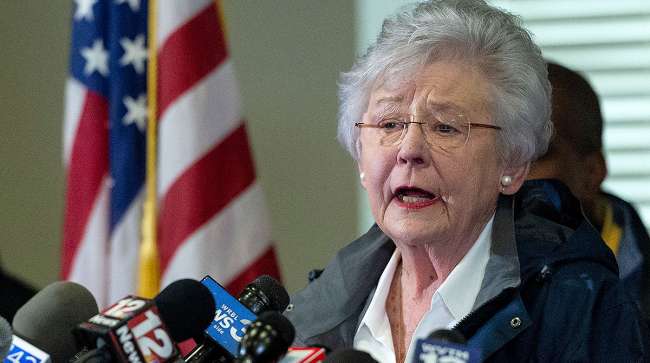Staff Reporter
Fuel Tax Hike Coming to Alabama in New Infrastructure Law

Alabama Gov. Kay Ivey has signed into law the Rebuild Alabama Act, which includes a fuel tax increase to support infrastructure projects.
Ivey signed the legislation at a public ceremony March 12, shortly after it was approved by the Legislature. She announced her Rebuild Alabama infrastructure plan Feb. 27.
The law includes plans for a 10-cent tax hike, which will be indexed to keep up with the rising cost of rebuilding roads. The revenue created through the fuel tax increase will be split among state, county and municipal government agencies for infrastructure improvement and maintenance projects.
The current excise tax is 19 cents per gallon for diesel and 18 cents per gallon for gasoline. The revenue created from these taxes creates 80% of Alabama’s transportation funding.
On Twitter Ivey said the day was truly “historic” for Alabama. And that passing the Rebuild Alabama Act meant “infrastructure will be improved for generations to come.”
Today is truly a historic day for AL! By passing the Rebuild Alabama Act, the Legislature has ensured AL’s infrastructure will be improved for generations to come. This wasn’t an easy task, but the men & women of the Legislature boldly came together to fix a decades old problem. pic.twitter.com/yYrhzQKPnq — Governor Kay Ivey (@GovernorKayIvey) March 12, 2019
A separate portion of the revenue will go toward improvements to the ship channel at the Port of Mobile, through which 64 million tons of cargo move a year. The legislation estimates that up to $10.2 million a year will be distributed to finance port improvements.
According to the Alabama State Port Authority, major imports include coal, aluminum, copper, fence posts and cement. Ivey said that Alabama’s exports reached 191 countries and topped $21.3 billion in 2018.
Appreciate the time Alabama elected officials took to assess the state’s infrastructure needs at its only deep water seaport. ALABAMA’S SEAPORT serves existing industry, creates jobs across the state and helps drive economic development. pic.twitter.com/7CLUJ0fvDU — Judith Adams (@ASPAJadams) February 28, 2019
The law also presents new registration fees for electric and hybrid vehicles. The license and registration fee for electric vehicles is $250, while the fee for hybrid vehicles is $125.
“Anybody who drives the road should pay something to drive the road,” Senate President Pro Tempore Del Marsh (R-Anniston) said March 12.
The American Society of Civil Engineers’ most recent infrastructure report card, issued in 2015, graded Alabama an overall C-. Bridges earned a C- and roads received a D+. According to The Road Information Program, a transportation research group, some 30% of Alabama’s roads and highways are in poor or mediocre condition because of insufficient funding.
“We have an efficient government,” Marsh said. “We are in a position to pass a piece of legislation that, in my opinion, is going to allow opportunities for our children and grandchildren to stay in Alabama, find jobs here and earn a good living.”




